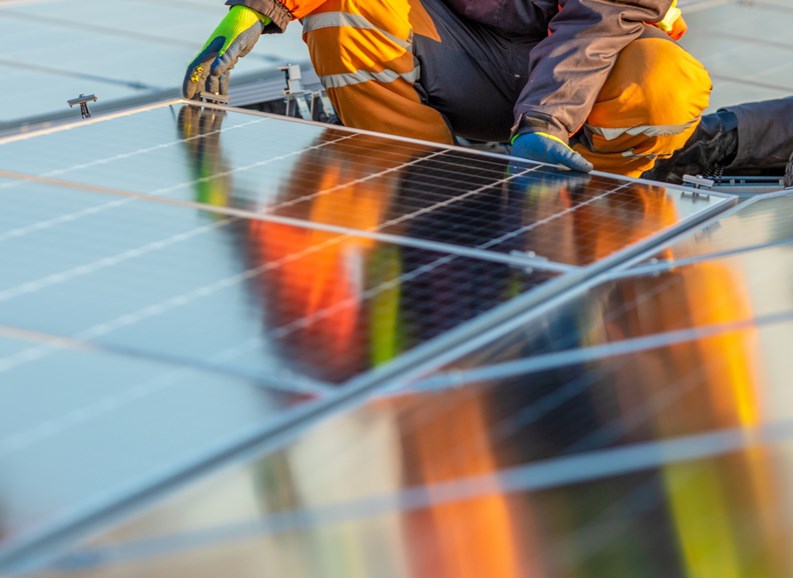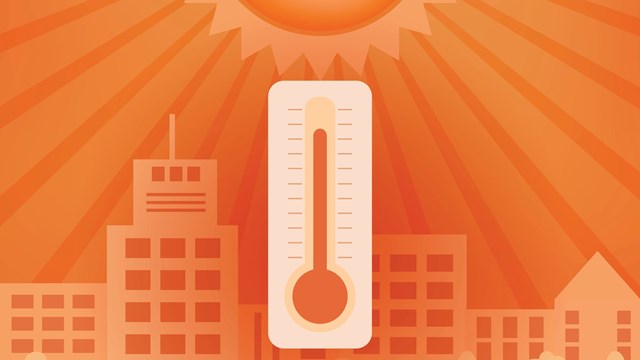As the solar industry continues to expand, it is crucial to understand that the successful implementation of photovoltaic (PV) systems, commonly called solar energy systems, goes beyond simply purchasing solar panels.
At the start of a project, it is of utmost importance to prioritize choosing a qualified electrical contractor to ensure the safe, effective, and efficient installation of your solar energy system.
There’s no way around it—installing solar is a costly undertaking. Photovoltaic energy systems are complex—and because of their complexity, improper installation practices can have far-reaching negative consequences, compromising performance and longevity. So while it may be tempting to choose the cheapest option, making sure the installing contractor is licensed, insured, and familiar with the permitting regulations in your area will pay off in the long run.
Five Common Issues Resulting from Improper Solar Installations
• Decreased System Efficiency and Increased Costs: Suboptimal positioning of solar panels, excessive shading, or inadequate wiring can result in significant energy absorption inefficiencies. This undercuts the cost benefits of solar conversion, as your system may not generate the expected energy level, leading to increased costs over time.
• Safety Hazards & Legal Issues: Faulty wiring, incompatible electrical components, and improper grounding and bonding of array components can pose serious safety risks during installation, including fire and accident hazards exacerbated by severe weather. Compliance with local building codes and acquiring required permits are also essential to a successful project—another reason it’s crucial that your solar contractor be intimately familiar with these local building codes and the permitting process.
• Frequent Malfunctions, Reduced
Lifespan, & System Failures: Improper installation can lead to recurring malfunctions, increased repair needs, and a shortened operational lifespan for your solar energy system. These issues disrupt energy supply, add financial burdens, and may require costly downtime, repairs, or even complete system replacements.
• Environmental Impact: Poorly installed solar systems fail to maximize the benefits of renewable energy. Proper installation practices effectively reduce greenhouse gas emissions and contribute to a more sustainable future.
• Roof Damage and Water Accumulation: Inadequate waterproofing or incorrect attachment techniques during solar panel installation can cause damage to your roof over time. This can include leaks, weakened structural components, and the potential for costly repairs or premature roof replacements. It's crucial to protect both the integrity of your roof and the functionality of the solar panels by employing proper installation methods.
While we’ve established the need for choosing a qualified contractor, selecting the right professional for the job can be challenging. Here are key considerations to ensure your solar installation project is managed by experts:
How to Choose a Qualified Contractor
• Verify Credentials: Reputable solar contractors in Illinois hold a Distributed Generation Installer certification from the Illinois Commerce Commission. This certification assures compliance with state standards and demonstrates the contractor’s competence.
• Insist on Comprehensive Service: Look for contractors that offer a comprehensive range of services, including assessment, installation, maintenance, and ongoing support. A holistic approach ensures consistency and quality, delivering optimal performance throughout the lifespan of your solar system.
• Understand Permitting: Electrical permits are mandatory in Chicago and its surrounding areas. Compliance with local building codes is crucial, and part of that involves ensuring that your chosen contractor employs a City of Chicago licensed supervising electrician, as required for permit acquisition.
• Do Your Due Diligence: Protect your investment by requesting references, verifying insurance coverage, understanding warranties, and confirming licensing. Verifying your contractor's reliability upfront can save valuable resources and provide peace of mind.
• Recognize the Signatory Difference: Your chosen contractor should provide access to electricians with advanced training in safety protocols and modern solar installation techniques. While some contractors may offer lower upfront pricing, they often lack comparable experience levels, potentially compromising system safety or quality.
• The Importance of Service and Maintenance: Solar systems require 25+ years of diligent maintenance per NFPA 70B standards to prevent malfunctions. It is advisable to choose an established, local Chicago contractor familiar with relevant codes to equip, service, and support long-term system performance and safety. As retrofitting accelerates locally, prioritizing contractors well-versed in NFPA 70B helps guarantee effective ongoing management.
Transitioning to solar energy represents a significant move toward sustainability, but demands meticulous attention to detail. Understanding the risks of improper setup and valuing qualified professionals helps both individuals and businesses ensure their solar investments deliver the intended environmental, financial, and functional benefits for years.
To connect with a qualified electrical contractor in the Chicago area, visit Powering Chicago's Find a Contractor tool.







Leave a Comment